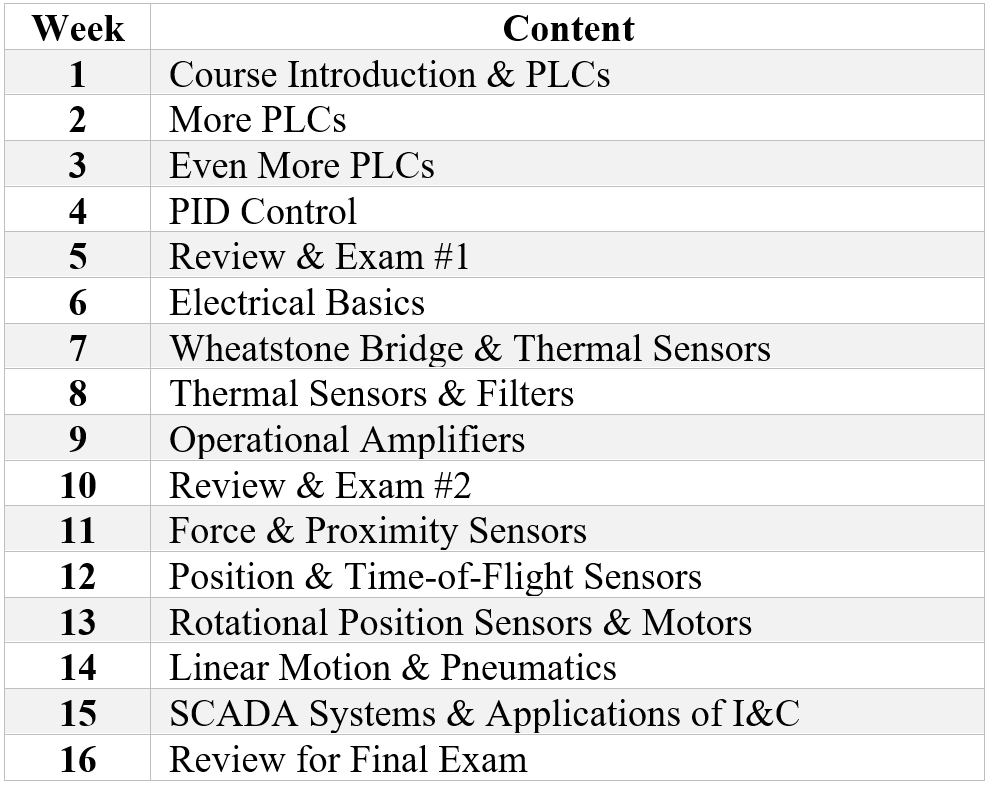Catalog Description:
This course is an introduction to instrumentation for measurement and control of physical variables, with an emphasis on electronic systems. Topics include: a review of basic circuit analysis, electrical instruments, sensors and measurement principles and a survey of automatic controls from a systems point of view.
Course Outcomes:
Upon successful completion of this course, students will be able to:
- Demonstrate understanding of electrical circuit components and fundamental circuit theory, analysis and design.
- Exhibit competence in the analysis and design of RC, RL, and RLC circuits and the use of passive filters in signal conditioning.
- Display an understanding of active devices including: diodes, transistors, and operational amplifiers.
- Analyze and design operational amplifier circuits for amplification, summing, integration, differentiation, and signal generation.
- Demonstrate an understanding of the fundamentals of dc motor theory, operation and control, transducers (sensors), and sensing circuits for the measurement of physical phenomena including, but not limited to, temperature, position, stress.
- Understand the functionality of system components such as timers, counters, digital-to-analog converters, and analog-to-digital converters in the process of signal acquisition and conditioning.
- Show an ability to successfully implement data acquisition and control of a physical system using LabVIEW software (in conjunction with the associated laboratory).
- Exhibit proficiency in the development of ladder logic to perform required tasks using a Programmable Logic Controller (PLC) (in conjunction with associated laboratory).






